Filter by

Transformer-Based Design Techniques for Oscillators and Frequency Dividers
This book provides in-depth coverage of transformer-based design techniques that enable CMOS oscillators and frequency dividers to achieve state-of-the-art performance. Design, optimization, and measured performance of oscillators and frequency dividers for different applications are discussed in detail, focusing on not only ultra-low supply voltage but also ultra-wide frequency tuning range a…
- Edition
- 1
- ISBN/ISSN
- 978-3-319-15873-0
- Collation
- XI, 205
- Series Title
- -
- Call Number
- -
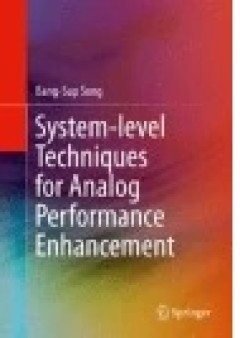
System-level Techniques for Analog Performance Enhancem
This book shows readers to avoid common mistakes in circuit design, and presents classic circuit concepts and design approaches from the transistor to the system levels. The discussion is geared to be accessible and optimized for practical designers who want to learn to create circuits without simulations. Topic by topic, the author guides designers to learn the classic analog design skills by…
- Edition
- -
- ISBN/ISSN
- 978-3-319-27921-3
- Collation
- IX, 225
- Series Title
- -
- Call Number
- -
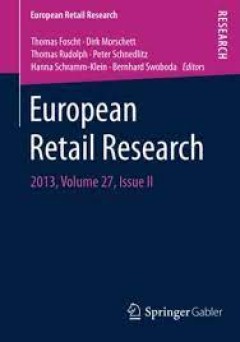
European Retail Research 2013, Volume 27, Issue II
The aim of EUROPEAN RETAIL RESEARCH is to publish interesting manuscripts of high quality and innovativeness with a focus on retail researchers, retail lecturers, retail students and retail executives. As it has always been, retail executives are part of the target group and the knowledge transfer between retail research and retail management remains a part of the publication’s concept. EUROP…
- Edition
- -
- ISBN/ISSN
- 978-3-658-07038-0
- Collation
- 17 b/w illustrations
- Series Title
- -
- Call Number
- -

European Perspectives on Behavioural Law and Economics
This anthology highlights the theoretical foundations as well as the various applications of Behavioural Law and Economics in European legal culture. By the same token, it fosters the dialogue between European and American Law and Economics scholars. The traditional neo-classical microeconomic theory explains human behaviour by using Rational Choice. According to this model, people tend to m…
- Edition
- -
- ISBN/ISSN
- 978-3-319-11635-8
- Collation
- 1 b/w illustrations, 10 illustrations in colour
- Series Title
- -
- Call Number
- -
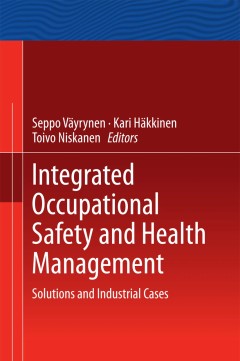
Integrated Occupational Safety and Health Management
Maximizing reader insights into a new movement toward leadership approaches that are collaborated and shared, and which views Occupational Safety and Health (OSH) and performance excellence within the wider examination of leadership relationships and practices, this book argues that these relationships and processes are so central to the establishment of OSH functioning that studying them warr…
- Edition
- -
- ISBN/ISSN
- 978-3-319-13179-5
- Collation
- XI, 306
- Series Title
- -
- Call Number
- 338.7 INT
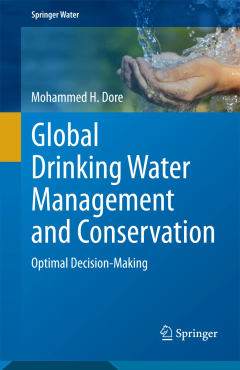
Global Drinking Water Management and Conservation
This book discusses different drinking water treatment technologies and what contaminants each treatment method can remove, and at what costs. The production of drinking water requires adequate management. This book attempts to fill the existing knowlegde gap about (a) water treatment technologies and their costs, (b) risk assessment methods, (c) adverse health effects of chemical contaminants,…
- Edition
- -
- ISBN/ISSN
- 978-3-319-11031-8
- Collation
- -
- Series Title
- -
- Call Number
- 333.7 MOH g
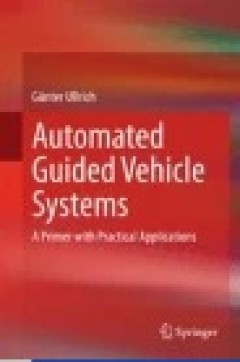
Automated Guided Vehicle Systems : A Primer with Practical Applications
This primer is directed at experts and practitioners in intralogistics who are concerned with optimizing material flows. The presentation is comprehensive covering both, practical and theoretical aspects with a moderate degree of specialization, using clear and concise language. Areas of operation as well as technical standards of all relevant components and functions are described. Recent deve…
- Edition
- -
- ISBN/ISSN
- 978-3-662-44814-4
- Collation
- XI, 227
- Series Title
- -
- Call Number
- 658.00973
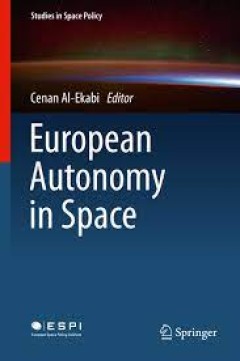
European Autonomy in Spac
The volume provides analyses and evaluations of the continuing importance of Europe’s autonomy in its access to space as a key driver in the development of European space capabilities. From a detailed historical analysis of some of the pitfalls of dependence in the space industry, experts analyse the full range of current European space capabilities and identify areas where autonomy is both p…
- Edition
- -
- ISBN/ISSN
- 978-3-319-11110-0
- Collation
- 6 b/w illustrations
- Series Title
- -
- Call Number
- -
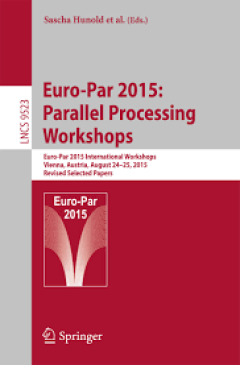
Euro-Par 2015: Parallel Processing Workshops Euro-Par 2015 International Wor…
This book constitutes the thoroughly refereed post-conference proceedings of 12 workshops held at the 21st International Conference on Parallel and Distributed Computing, Euro-Par 2015, in Vienna, Austria, in August 2015. The 67 revised full papers presented were carefully reviewed and selected from 121 submissions. The volume includes papers from the following workshops: BigDataCloud: 4th W…
- Edition
- -
- ISBN/ISSN
- 978-3-319-27308-2
- Collation
- 323 illustrations in colour
- Series Title
- -
- Call Number
- -
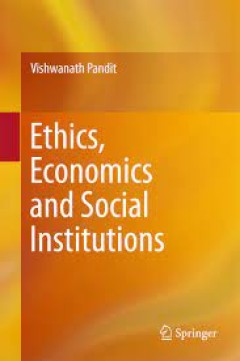
Ethics, Economics and Social Institutions
The book highlights the ethical aspects and issues that are inherent to economics in the context of today’s prominent social institutions. It reviews a range of problems concerning dominant social institutions, namely markets, government agencies, corporate entities, financial networks, and religious systems. Further, in each case, the book takes a detailed look at the economic problems as th…
- Edition
- -
- ISBN/ISSN
- 978-981-10-0899-3
- Collation
- 4 illustrations in colour
- Series Title
- -
- Call Number
- -
 Computer Science, Information & General Works
Computer Science, Information & General Works  Philosophy & Psychology
Philosophy & Psychology  Religion
Religion  Social Sciences
Social Sciences  Language
Language  Pure Science
Pure Science  Applied Sciences
Applied Sciences  Art & Recreation
Art & Recreation  Literature
Literature  History & Geography
History & Geography